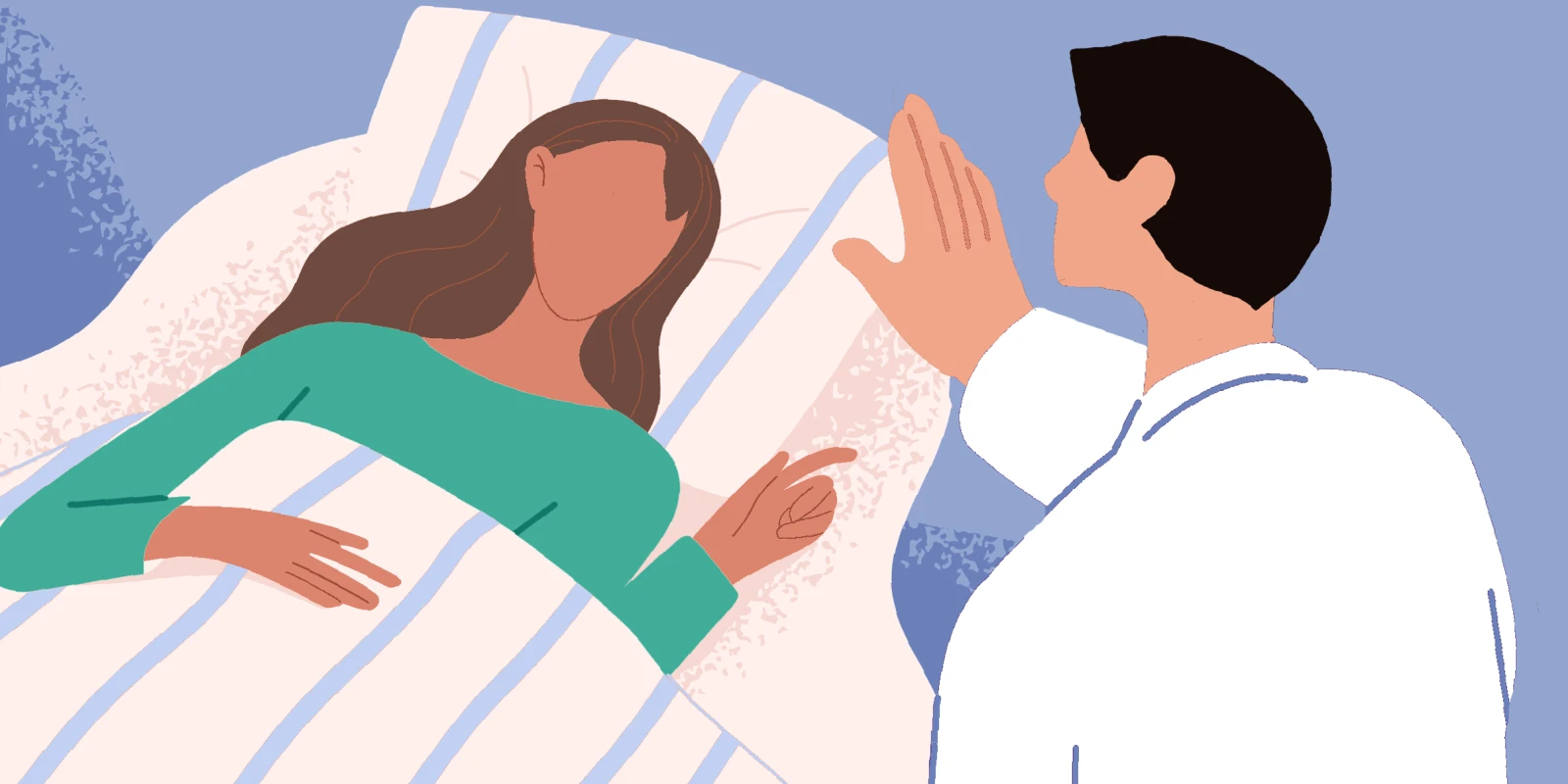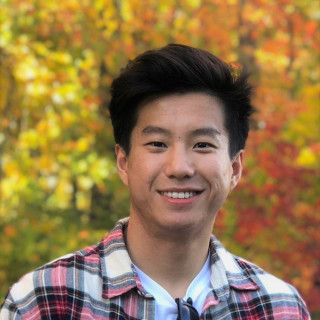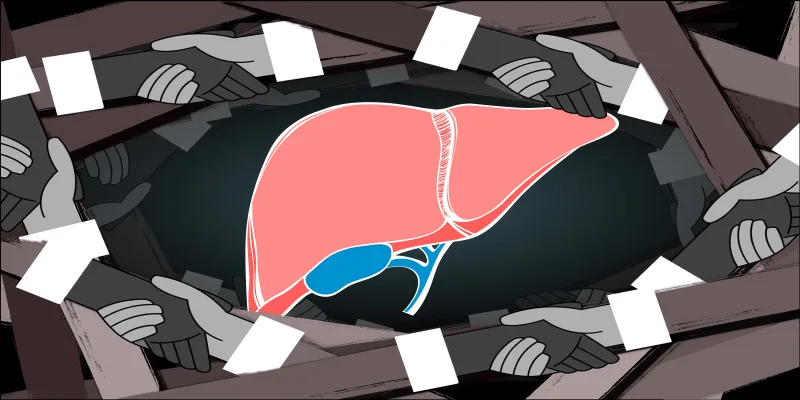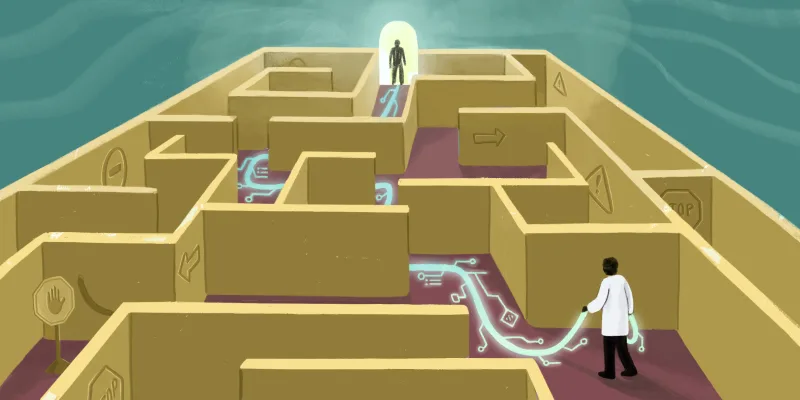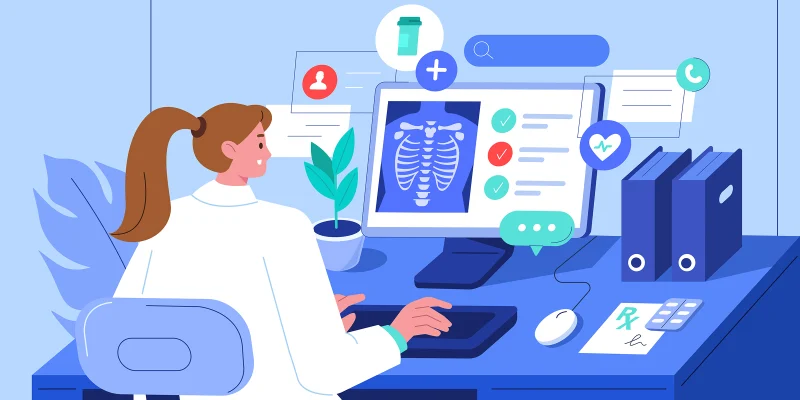“I don’t want to talk with you. What good are you? Bring me a real doctor!” My patient, T, screamed at me.
“I’m sorry,” I shook my head. “I’ll let my senior resident know, and we’ll be back shortly.”
“Of course you will. I know shortly means another 45 minutes.” She made a face in exasperation.
“I’m very sorry. I’ll do my best to come back soon.”
This was my fifth night in the ED. As a second-year medical student on my surgery clerkship, we were assigned to spend two weeks in the ED. By now, I had gotten used to the lack of sleep and food, though when the late nights came about, I was always running on fumes.
“T is here for left lower quadrant abdominal pain, but I was only able to get through two questions before she refused to speak with me,” I confessed to my resident. “I wasn’t sure what to say, as it definitely caught me off guard.”
My resident laughed. “We’ve all been there before. We’ll go see her together soon.”
We walked over together. T was with her daughter, who was sitting with her on her hallway bed.
“Took you long enough,” T said in a sarcastic voice.
“I’m so sorry for the delay, but with the Omicron surge, our ED has been overflowing,” I replied tersely. No matter how calm I kept telling myself to be, her caustic tone was beginning to erode my patience.
“No kidding. My insides are killing me, yet you have me waiting out here for everyone to see.”
“We want to do our best to help you. But the most efficient way is if you can speak with us about your symptoms.”
T shifted around in her seat. “OK,” she said, after a couple seconds. “Ask me whatever you want.”
By the end of our conversation, we generated a decent understanding of our next steps. Just before we left, I noticed her licking her lips, and almost unconsciously asked if I could get her any water. “Please,” she replied, “I’d love some.”
When I went back, this time alone, but with water, she seemed almost embarrassed about her behavior before. She told me about how she’d been at the hospital for more than five hours, and that the constant waiting, uncertainty, and pain was becoming unbearable to her. Without being asked, she began talking about her past medical history, about prior instances of similar types of pain, and of her deep resentment toward doctors and hospitals in general.
The more we chatted, the more I realized how much I still had to learn. I could have chosen to classify this patient as difficult, rude, and unwilling to cooperate. That might have even been the easier route to take, especially late at night, when I was sleep- and food-deprived. And at first, I did take that route — it was my automatic, default instinct.
But all it took was a shift in perspective on my end for all T’s behavior to make sense. Her bed was at one of the busiest hallway intersections in the ED; the constant clamor and open space meant she could never rest or have a quiet moment to herself. She was experiencing pain that was worse than anything she had felt before, and she wanted to be brave in front of her daughter. And she’d waited for hours, with unfamiliar faces constantly peering in.
Getting her water took maybe two minutes of my time, but to her, it was the biggest act of kindness she had experienced that night. It allowed her to open up, and simultaneously was the jolt I needed to consciously shift my perspective and better understand her situation. It took virtually little to no effort on my part, but by just changing my mindset, our relationship suddenly shifted from one of hostility to vulnerability.
This interaction reminded me of the power that our attitudes have on our day-to-day encounters with patients. When we view patients as problems, especially when we have trouble connecting with them, we have an easy answer for their “difficult” behavior. But when we view them as people with untold stories — when we force ourselves to be more open-minded, and to spend a little more time with them — we can dramatically affect the outcome of patient encounters. Sometimes even the little things, like a cup of water, can serve as new windows for empathy and connection.
“I completely understand,” I told her. “Please let me know what I can do to make the rest of the night more comfortable for you.”
She thanked me, and I told her I’d be back in an hour to check in again, this time with another cup of water.
Have you ever had a patient you changed your mind about? Share in the comments!
David Xiang is a third-year medical student at Harvard Medical School, aspiring to be a physician-writer. He enjoys writing poetry and fiction, playing ukulele, and playing basketball with classmates. He also makes comedy skits on TikTok @confused.med.student. David was a 2022–2023 Doximity Op-Med Fellow.
